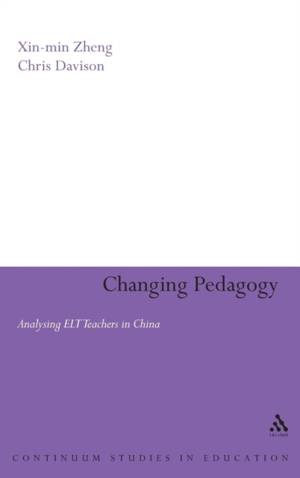
- Retrait gratuit dans votre magasin Club
- 7.000.000 titres dans notre catalogue
- Payer en toute sécurité
- Toujours un magasin près de chez vous
- Retrait gratuit dans votre magasin Club
- 7.000.0000 titres dans notre catalogue
- Payer en toute sécurité
- Toujours un magasin près de chez vous
373,45 €
+ 746 points
Description
China's growing economic, military and political stability have, for the first time, started to gain international recognition. As China increasingly opens up to the world, its unique role in the context of economic globalization is becoming more pronounced, which is exemplified by its recent membership of the WTO and Beijing's successful bid to host the Olympic Games. Unsurprisingly, this has resulted in an explosion in the popularity of English language learning in China, which has, in turn, led to radical reform of the curricula, teaching methods, teacher education and assessment system in China in order to improve standards.
This fascinating monograph explores the nature of the implemented English language curriculum in China, focussing, in particular, on the pedagogy of secondary school teachers. There follows an insightful analysis into how such teachers, in different situations and with different backgrounds and motivations, make decisions about what and how they teach, and the extent to which they adapt the promoted methods in the their individual teaching environments. The authors then use their findings to propose an innovative and coherent framework, which has far-reaching consequences for pedagogy in China and across the world.
Spécifications
Parties prenantes
- Auteur(s) :
- Editeur:
Contenu
- Nombre de pages :
- 232
- Langue:
- Anglais
- Collection :
Caractéristiques
- EAN:
- 9780826488763
- Date de parution :
- 20-04-08
- Format:
- Livre relié
- Format numérique:
- Genaaid
- Dimensions :
- 158 mm x 240 mm
- Poids :
- 494 g

Les avis
Nous publions uniquement les avis qui respectent les conditions requises. Consultez nos conditions pour les avis.






